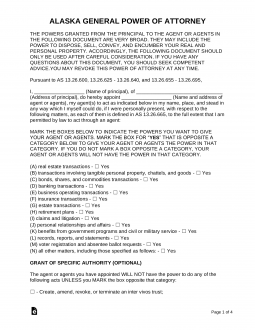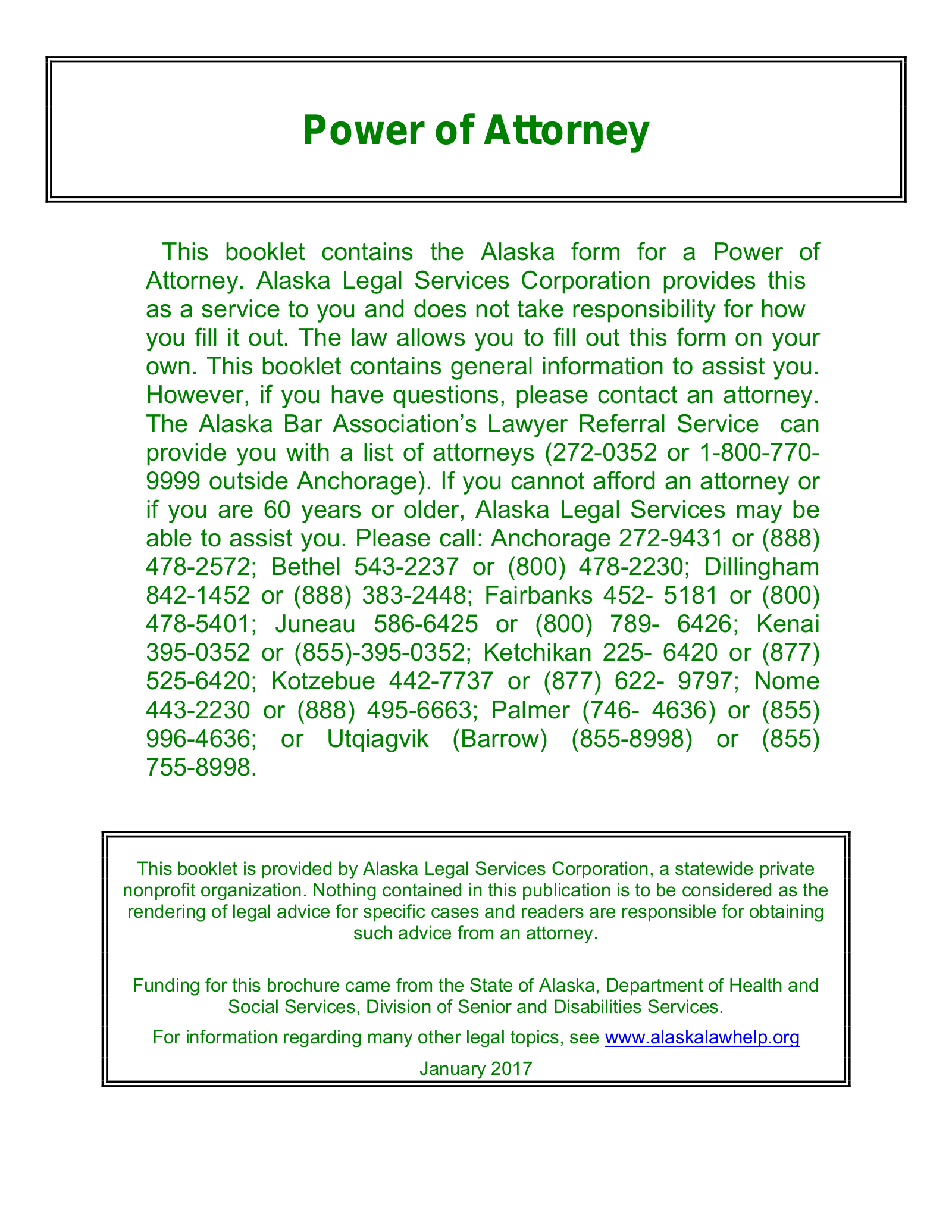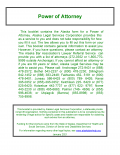Updated February 29, 2024
An Alaska durable (statutory) power of attorney allows someone (principal) to transfer their individual monetary and business rights to someone else (agent). The principal should know the full capacity to which the power they are giving their agent by reading the form and initializing where necessary. In addition, the principal should be advised that the power they are providing the agent remains in force even if they should become incapacitated unless otherwise stated.
Signing Requirements
The principal must have their signature acknowledged in the presence of a notary public.[1]
Versions (2)
Download: PDF, MS Word, OpenDocument
Download: PDF
Revocation
A durable power of attorney can be terminated in the following manners:
- If a revocation form is signed by the principal and presented to the agent and any 3rd parties;
- If an end date is mentioned in a power of attorney; or
- If other termination language is stated, such as accomplishing a goal.[2]
Statutory Form
The State of Alaska has a statutory document required for use.[3]
Sources




